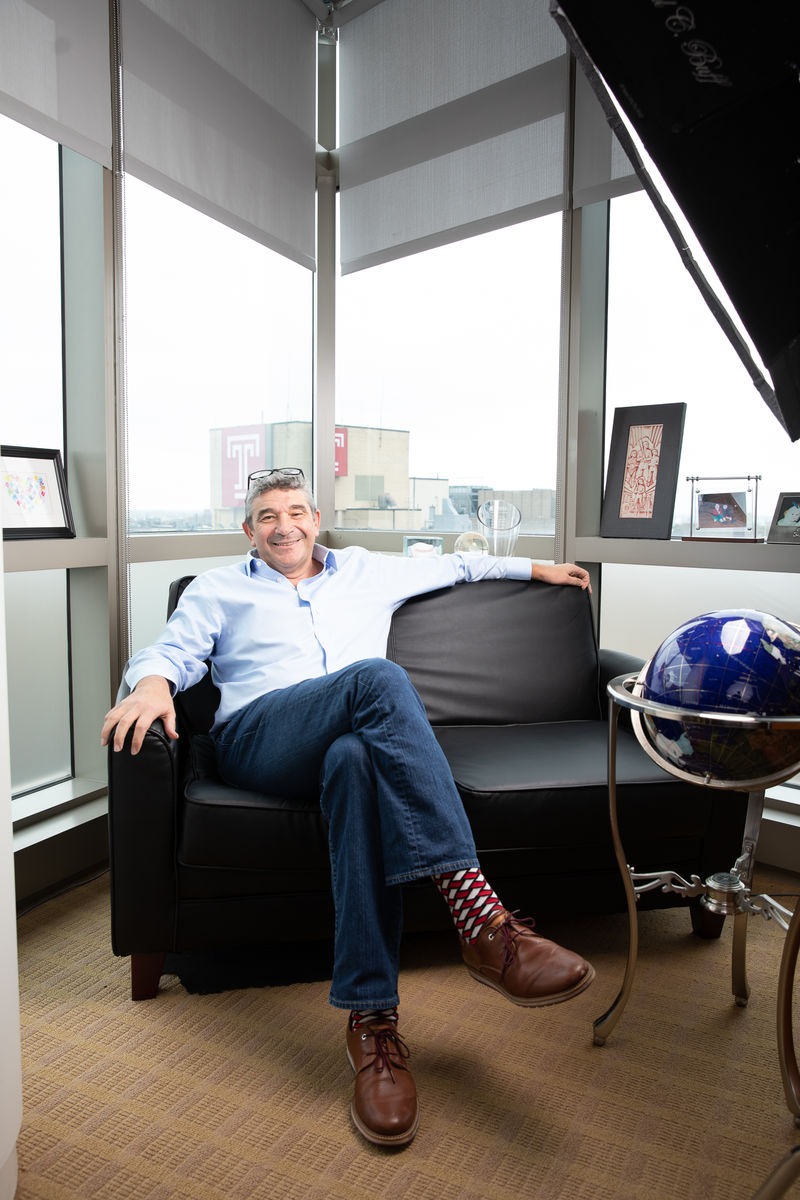Walter J. Koch, PhD, isn’t one to rest on his laurels. An internationally recognized heart researcher known for his pioneering work on enzymes implicated in heart failure, Dr. Koch is a fellow of both the American Heart Association and the International Society for Heart Research (ISHR) and has earned prestigious honors including ISHR’s 2020 Research Achievement Award – the highest honor given to a senior heart researcher.
Association and the International Society for Heart Research (ISHR) and has earned prestigious honors including ISHR’s 2020 Research Achievement Award – the highest honor given to a senior heart researcher.
He also has garnered continuous grant funding since 1998 from the NIH, the American Heart Association, and the W.W. Smith Foundation. He worked previously with Robert Lefkowitz, MD, who went on to win the Nobel Prize in Chemistry in 2012. And one of his papers even earned a rare badge of cultural distinction: mention on Saturday Night Live. But Dr. Koch looks beyond those experiences to the next challenge, the next achievement.
“Your glory days should always be in front of you,” he said, “so I hope I haven’t reached the highlight of my career yet. I always want to be moving forward towards that day.”
Dr. Koch, who came to Temple in 2012, is the W.W. Smith Endowed Chair in Cardiovascular Medicine and Director of the Center for Translational Medicine at the Katz School of Medicine.
Recently, he took on another important new responsibility: chairing the newly formed Department of Cardiovascular Sciences, the largest of six departments formed last summer in a re-organization of the basic sciences at the Lewis Katz School of Medicine. He led the dean’s restructuring committee, which proposed and designed the reorganization. Goals behind the formation of the new departments included consolidating smaller units and eliminating redundancy, he said, adding, “We now have functional units under umbrellas that make sense.”
His immediate focus as department chair: recruit new faculty. “We want to get bigger and capitalize on our success,” he said. “That’s our goal for the next one to three years.”
Kinases are enzymes that transmit signals and regulate complex processes in cells. Dr. Koch has spent the past 25 years studying two of them—called GRK2 and GRK5 — that are upregulated in heart failure. His laboratory has made major advances in understanding how the kinases contribute to heart function and heart disease.
“They both play a really important role in the heart, we believe, and I think they both have a role as drug targets,” he said.
Dr. Koch noted that gene therapy products and small-molecule inhibitors based on his work are close to entering clinical trials. “Hopefully we’ll see a translation of really basic discovery work,” he said. “It’s taken almost 30 years and a lot of papers and a lot of hard work from a lot of people in the lab. It’s really exciting. From our work, we’ve started a whole new field of showing the importance of this family of enzymes in human disease.”
He noted that he hopes to see GRK-targeted drugs developed in the next five to 10 years. “There are no drugs like GRK inhibitors on the market,” he said. “It would be a totally new class of drugs, so we’re excited about that.”
Dr. Koch finds Temple to be an excellent home for his research, as well as a top-notch destination for prospective medical students and scientists.
“The people who come to Temple have a quality of just coming in and getting the work done,” he said. “People aren’t afraid to work hard. You just do what you’ve got to do. I think that’s the Temple way. We have some really talented scientists here, well-known scientists.
"My department has two $12 million NIH program project grants, or P01s, in heart failure. No other unit in the whole country has two,” he said. “We do extremely well here. We’re well known all over the world and have opportunities in heart failure research that no one else does. So if you want to do heart failure research, there’s no better place.”
While Dr. Koch is proud of his research efforts, he is most proud of his mentorship of the next generation of scientists. “I have trained over 60 pre- and post-doctoral fellows since 1995,” he said, “and many have gone on to their own successful careers.”
In his view, mentoring is critical. “In the end, all we have is our legacy,” he said. “When we’re gone, the people we leave behind is all that’s left. That’s how people remember us. I was trained well; my mentors mean everything to me. You’ve got to keep passing it forward.”
Dr. Koch is passionate about the bigger picture of heart health that his research is part of. The fact that heart failure is so common and deadly — it contributes to nearly 300,000 U.S. deaths each year — "keeps me driven,” he said. He is an active volunteer with the American Heart Association, serving on its national committees. “That keeps me passionate about the whole community of advocacy,” he said. “We have so much to do at so many different levels.
“I’m trying to find new therapies, but prevention is key, too, and there are things everybody can do to decrease the incidence of heart disease.”
— Abbey J. Porter
